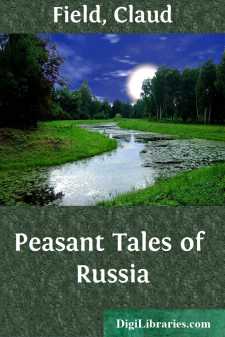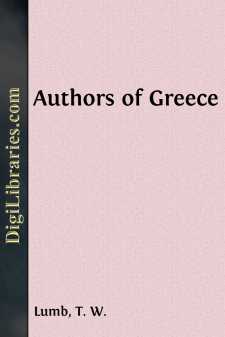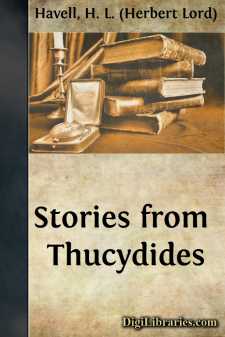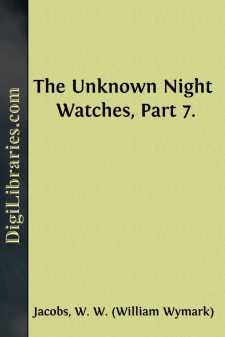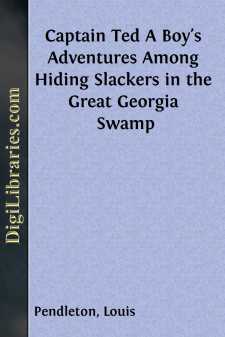Fiction
- Action & Adventure 180
- Biographical 15
- Christian 59
- Classics
- Coming of Age 5
- Contemporary Women 3
- Erotica 8
- Espionage/Intrigue 12
- Fairy Tales, Folklore & Mythology 236
- Family Life 169
- Fantasy 117
- Gay 1
- General 596
- Ghost 32
- Historical 808
- Horror 43
- Humorous 160
- Jewish 25
- Legal 4
- Medical 22
- Mystery & Detective 315
- Political 49
- Psychological 41
- Religious 64
- Romance 159
- Sagas 11
- Science Fiction 730
- Sea Stories 113
- Short Stories (single author) 537
- Sports 10
- Suspense 1
- Technological 8
- Thrillers 2
- Urban Life 31
- Visionary & Metaphysical 1
- War & Military 173
- Westerns 199
Classics Books
Sort by:
by:
Claud Field
At the entrance of the Voskressensky mine stood a group of miners. All were quite silent. It was still dark, for the autumn days begin late. Heavy grey clouds glided slowly over the sky, in which the first streaks of dawn were hardly visible. These clouds glided so low that they seemed to wish to lie on the earth in order to hide this black hole, this well-like orifice which was about to swallow up the...
more...
INTRODUCTION When the rumored discovery in the year 1861 of extensive gold placers on Salmon river was confirmed, the intelligence spread through the states like wild fire. Hundreds of men with dependent families, who had been thrown out of employment by the depressed industrial condition of the country and by the Civil War, and still others actuated by a thirst for gain, utilized their available...
more...
by:
T. W. Lumb
INTRODUCTION I count it an honour to have been asked to write a short introduction to this book. My only claim to do so is a profound belief in the doctrine which it advocates, that Greek literature can never die and that it has a clear and obvious message for us to-day. Those who sat, as I did, on the recent Committee appointed by Mr. Lloyd George when Prime Minister to report on the position of the...
more...
by:
Karin Michaelis
The Dangerous Age My Dear Lillie, Obviously it would have been the right thing to give you my news in person—apart from the fact that I should then have enjoyed the amusing spectacle of your horror! But I could not make up my mind to this course. All the same, upon my word of honour, you, dear innocent soul, are the only person to whom I have made any direct communication on the subject. It is at...
more...
PROLOGUE In a former volume we have traced the course of events which ended in the complete overthrow of Xerxes and his great army. Our present task is to describe the chief incidents in the cruel and devastating war, commonly known as the Peloponnesian War, which lasted for twenty-seven years, and finally broke up the Athenian Empire. The cause of that war was the envy and hatred excited in the other...
more...
THE UNKNOWN "Handsome is as 'andsome does," said the night-watchman. It's an old saying, but it's true. Give a chap good looks, and it's precious little else that is given to 'im. He's lucky when 'is good looks 'ave gorn—or partly gorn—to get a berth as night-watchman or some other hard and bad-paid job. One drawback to a good-looking man is that he...
more...
THE ADVENTURE OF THE HERALD PERSONAL That I was in a hard case is best attested by the fact that when I had paid for my Sunday Herald there was left in my purse just one tuppence-ha'penny stamp and two copper cents, one dated 1873, the other 1894. The mere incident that at this hour eighteen months later I can recall the dates of these coins should be proof, if any were needed, of the importance...
more...
by:
Joseph Grinnell
Fieldwork was carried on by the California Museum of Vertebrate Zoology during 1917 in the Inyo region of eastern California. In going over the collection of birds obtained, the attention of the writer was arrested by certain peculiarities evident in the Mountain Chickadees. Comparison with series from the Sierras showed the Inyo birds to be paler colored and longer tailed; and in order to appraise...
more...
by:
Louis Pendleton
TED and Hubert were proud of the commission and felt that much depended on them. Ted led the way, not merely because he was past fourteen and more than half a year older than his cousin, but because Hubert unconsciously yielded to the captaincy of a more venturesome and resolute spirit. Everything was ready for Christmas at homeâmince pies, fruit cake, a fat turkey hanging out in the coldâand...
more...
by:
Henry James
"Olive will come down in about ten minutes; she told me to tell you that. About ten; that is exactly like Olive. Neither five nor fifteen, and yet not ten exactly, but either nine or eleven. She didn't tell me to say she was glad to see you, because she doesn't know whether she is or not, and she wouldn't for the world expose herself to telling a fib. She is very honest, is Olive...
more...


